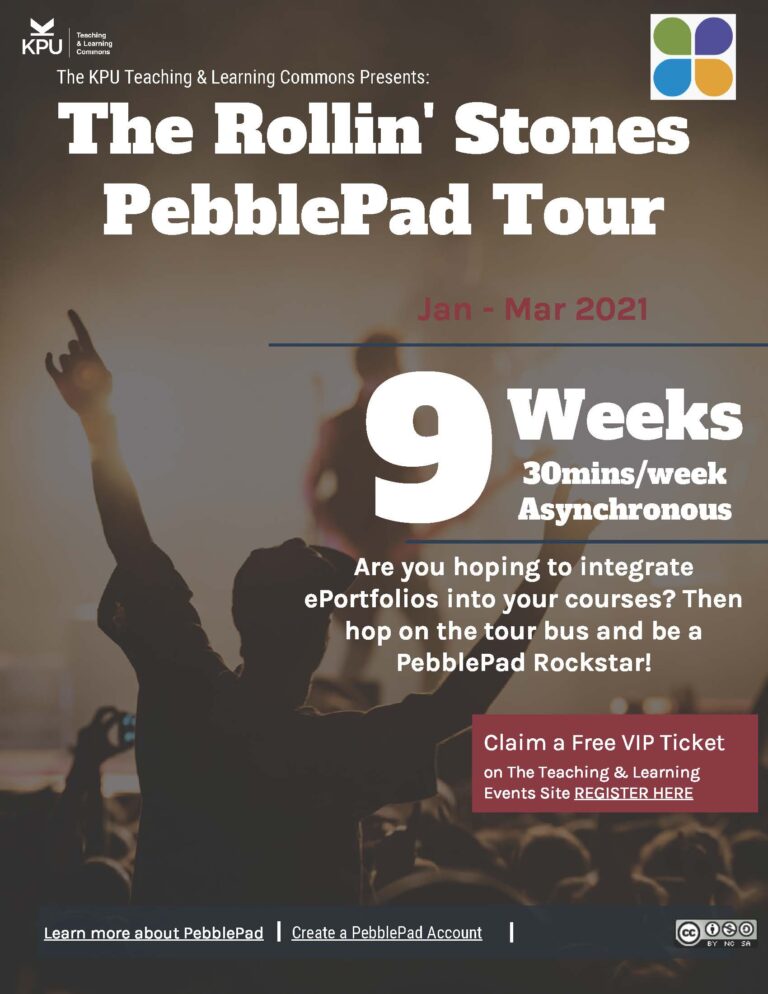Faculty Spotlight: Arley Cruthers
Teaching & Learning Commons Newsletter | August 2019
by: Gina Buchanan

The interview
I am delighted to feature Arley Cruthers to debut our new faculty profile series in our monthly newsletter. I had the opportunity to chat with Arley earlier this month and eager to share with you what I learned about Arley and the interesting and innovative strategies she employs as an educator.
Arley’s role at KPU …
Arley is a communications faculty in the department of Applied Communications and Public Relations in the School of Business and teaches business communications courses, essentially, writing for the workplace. Arley has been teaching at KPU for a little more than four years now and is the recent recipient of the Award for Excellence in Open Education from BC Campus!
A little bit about Arley …
After acquiring a physical disability Arley became a wheelchair athlete playing on Canada’s national wheelchair basketball team from 2001 to 2007, winning two World Championships and a bronze medal at the 2004 Paralympics. She describes wheelchair basketball as bumper cars meets chess!
Arley received a Master’s of Fine Arts in creative writing from the University of Illinois and has been published in literary journals at the University of Toronto, and the University of Victoria. She is a published author of two books, “Post” and “The Time We All Went Marching,” and “Post” was shortlisted for the 2008 Commonwealth Writers’ Prize for Best First Book! She is currently at work on a non-fiction book.
Arley is Mom to the adorable Dorothy and co-owner of Queen of Tortitude, their family cat.
What do you most enjoy about teaching?
“The students! I am passionate about my job!” She shared several stories with me of her students, some heartbreaking, and yet all served to remind me not only of the vulnerability of our students but also their resilience, resourcefulness, and determination. Arley’s compassion for and commitment to her students is admirable as is her willingness to creatively respond to challenges she encounters with her students and in her classroom. “I have no control over most of the barriers my students encounter however those that I do have control over I need to take action on tin service of my students.” She reminds us all … “begin with your students… know your students … like your students. We have a lot of amazing students at KPU”
You employ some interesting strategies as an educator … what do you do?
Arley has adopted several interesting strategies with her students to facilitate learning. Shared across these strategies appears to be a vested interest in co-creating with her students and creating opportunities for the students to exercise agency and produce meaningful work unique “I want to let students decide how they want to show me what they are learning/have learned.” Additionally, Arley strives to recognize and respect that each student needs to determine their level of investment in her course according to their individual priorities, resources and capabilities. ”I want to give students choice about how they want to make their time in my course meaningful, how they want to choose to invest in the course and experience has taught me students appreciate and benefit from the choice.”
Arley’s innovative and creative approach to assignment design inspired her to develop a unique series of assignments for her class. Each semester she invites her class to decide on a research question which is then researched and reported upon through a series of assignments which she has generously shared and are available here. “I have tried to create a course that allows students to participate in a way that meets them where they are and according to their needs.”
Arley recently lead two classes to collaboratively research and write a report on the impact of textbook costs on students (available here). Students were them assigned to recreate the report for a different audience leading a group of three students to create a game to help instructors develop empathy about textbook costs for students. Arley and the students presented the game and the research at the Cascadia Open Education Summit held in Vancouver in April. An amazing learning experience for those students!
In keeping with her social justice principles and recognizing the cost of textbooks as a significant barrier to too many students Arley turned to using open resources in her class. “I am committed to practicing open, sustainable pedagogy.”
What is your most memorable highlight from teaching at KPU
Attending and presenting at the Cascadia Open Education Summit with my students!
What has been your biggest challenge as an educator?
“A lot of students come into my class with a lot of negative ideas about writing. Until I uncover and address the assumptions, the feelings, their negative histories with writing it will be difficult for me to teach and then to learn about writing … I teach writing as process. I want them to learn the decision making of being a writer so that independent of how, in what format, they are writing they will be able to make the decisions necessary to help them to write well.”
How do you help yourself develop as an educator?
It was really interesting to listen to Arley both acknowledge the importance of developing as an educator, her commitment to doing so and her insights along the way as she continues in her journey.
Arley laments the few opportunities typically available to faculty to understand the importance of investing in not only discipline specific professional development but also of developing as an educator. She wondered aloud “how can we better help people reflect on their pedagogy, faculty to think about their teaching, to have conversation with our colleagues about teaching?” To develop as educators, we have to invest in our understanding of pedagogy.
Arley talked about her own journey as an educator and a growing realization borne from her experience as both a student and a teacher, that education and her role as an educator is evolving “the more I get into it the more I have realized teaching is more about building relationships with my students and them with each other and building skills and less about content delivery …There are so many other ways that students can get content. I am no longer the gatekeeper of knowledge …. I want to create something you can’t Google. I want to create an experience, an experience that we, my students and I, will remember.”
What are you working on now?
I am writing an Open Textbook “Business writing for everyone: An inclusive guide to writing in the workplace.”
If you would like to be featured in an upcoming newsletter or have a colleague you wish to see featured please contact tlcommons@kpu.ca

